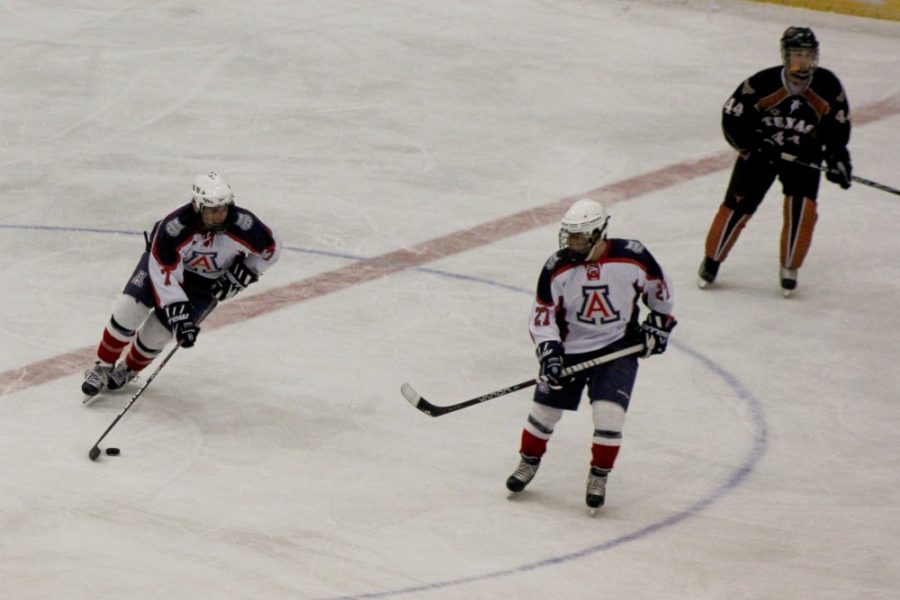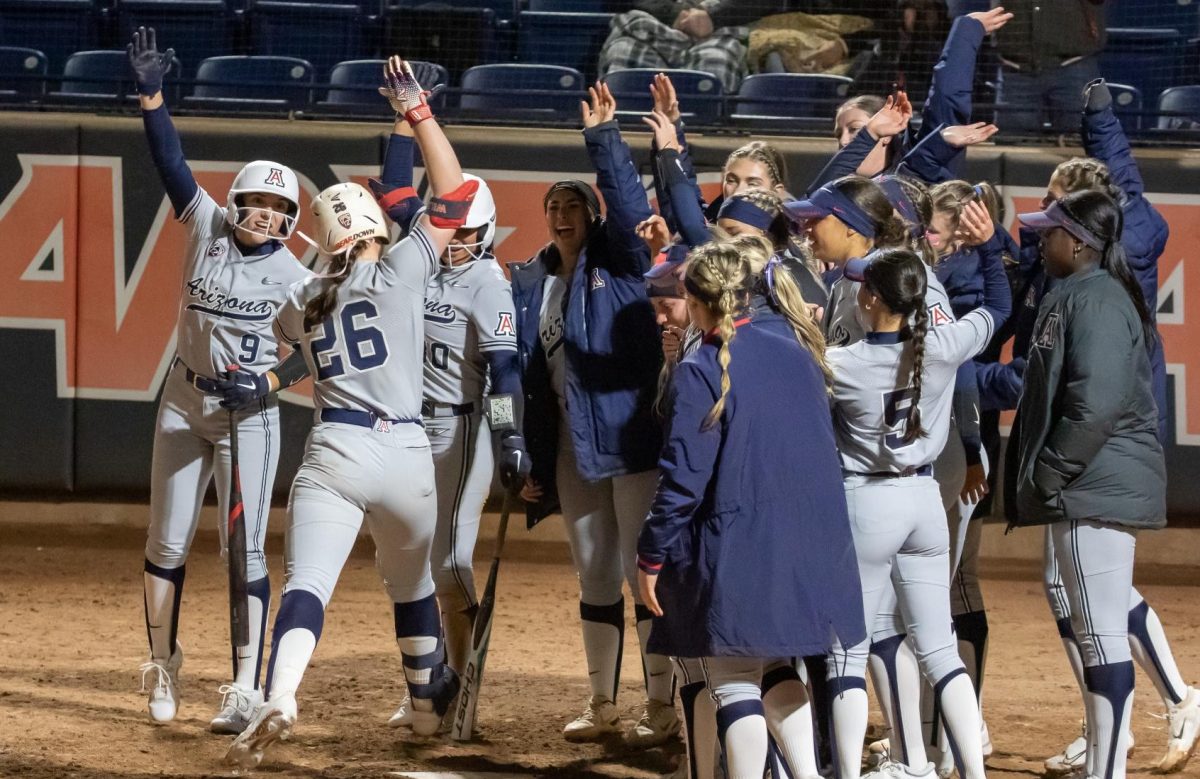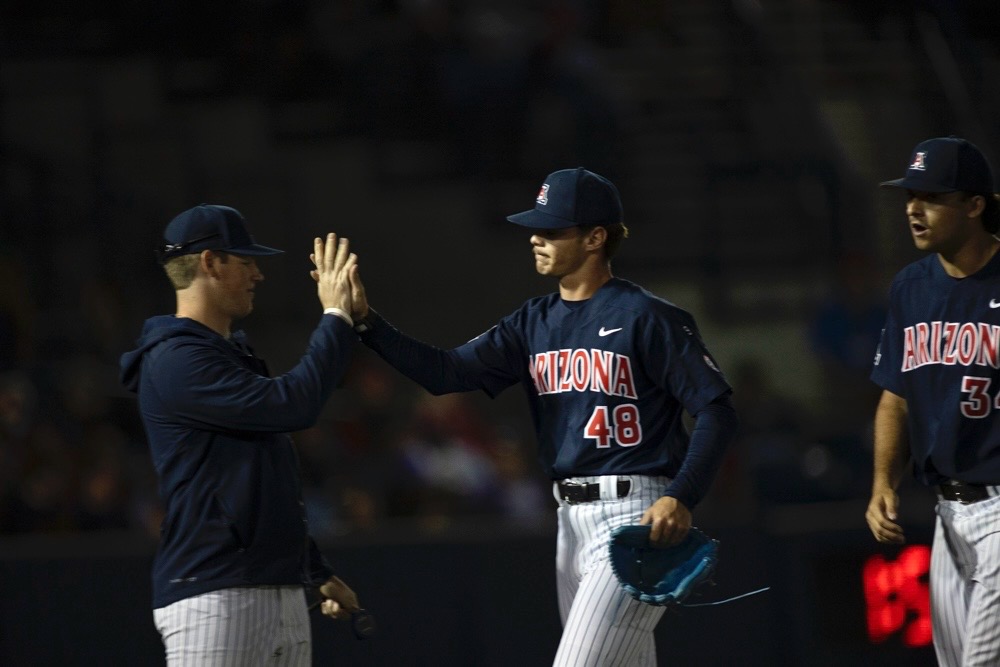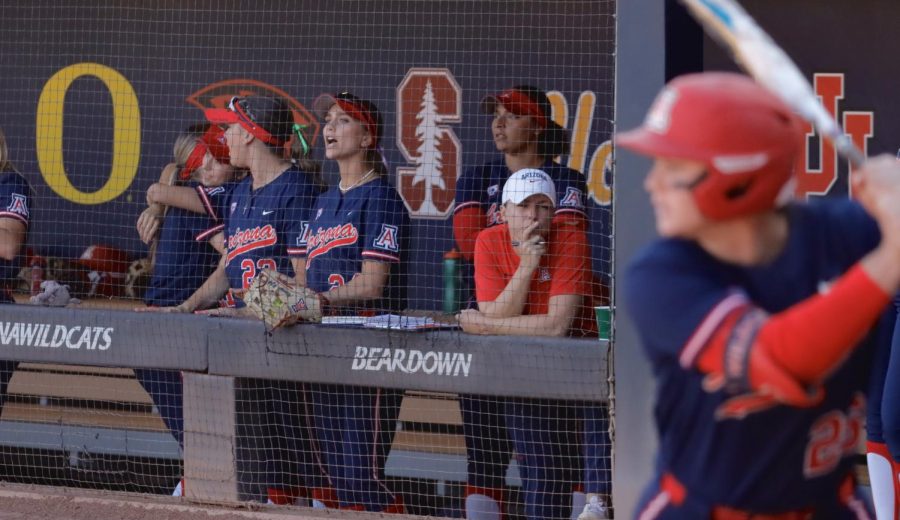At 12:01 a.m. Eastern time on Sunday, Sept. 16, the NHL owners locked out their players after they couldn’t reach an agreement on a new collective bargaining agreement.
The Arizona Wildcats hockey team might see a boost in attendance due to the lockout, but it’s not happy about it.
“It’s pretty sad,” senior forward Brian Slugocki said. “I mean, it’s sad that they can’t figure out their money issues regardless of how big they are, because in the last eight years you’ve had unbelievable growth in hockey throughout the country and we’ve had new fans from all over. … To just have it stop like that over a simple money issue kinda seems a little childish.”
The lockout is the fourth work stoppage for the NHL since 1992. In 2004-05 the NHL became the first league to cancel an entire season because of labor strife.
“It’s disappointing for sure, you’d like to see the players and owners come to an agreement,” said head coach Sean Hogan. “I think it’s frustrating for the fans for sure because you want to be able to go to watch hockey, and the NHL in some parts of the country is not as big as other parts.”
“I was reading some stuff on our Facebook page,” Slugocki said. “I think [the lockout] might help us get some more fans because the diehard hockey fans, they’re going to need to do something to get rid of that need to watch hockey, so I think we could potentially get more fans.”
Hogan said when he was coaching Oakland during the last lockout, they did see an attendance increase.
“It might be something that might help us, we’re two hours away from Phoenix, but it might give us a bump,” Hogan said.
Conversely, during the work stoppage, some NHL players are going to play in Europe and some in the minors. This hurts players like former Wildcat Jonathan Watanabe, who will try out for the Evansville IceMen of the East Coast Hockey League, the AA affiliate of the St. Louis Blues.
“It just makes it harder on guys coming out of college,” Hogan said.
According to Sports Illustrated, the NHL’s revenues are now $3.3 billion, a 33 percent increase from 2005-06.
The NHL is the third major pro sports league to have a lockout in the last 18 months, following the NFL and NBA.
“I think if there [are] no teams for the kids to look up to, they’re not going to want to play hockey,” said Slugocki. “It’s so much easier to just go out and play basketball or football because all you need is a ball. It’s harder to get into hockey, especially in the desert, because you’re not around it as much.”









